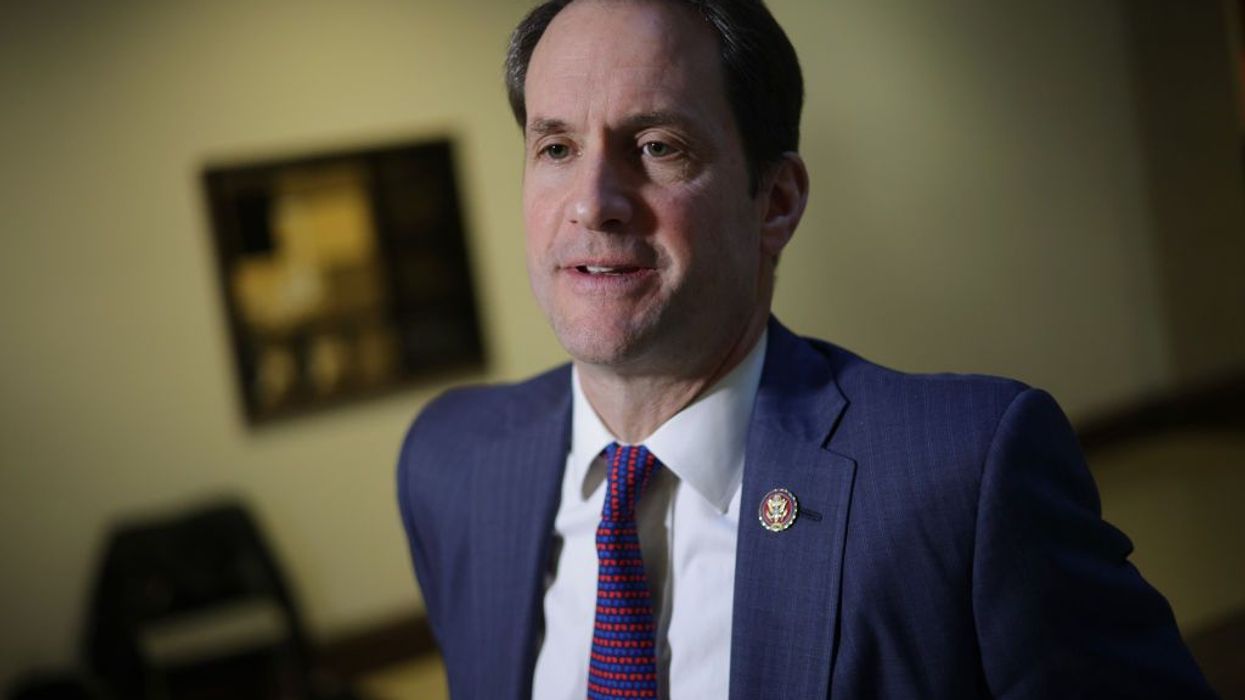July, 13 2009, 08:42am EDT

Somaliland: Fragile Democracy Under Threat
Electoral Crisis Underscores Broader Human Rights Concerns
HARGEISA, Somaliland
The Somaliland government's disregard for the law and democratic processes threatens the territory's nascent democracy, Human Rights Watch said in a report released today. The administration of President Dahir Riyale Kahin has committed human rights violations and generated a dangerous electoral crisis.
The 56-page report, "'Hostages to Peace': Threats to Human Rights and Democracy in Somaliland," says that Somaliland's government has helped create a measure of stability and democratic governance even as Somalia has remained mired in armed conflict. But Somaliland's gains are fragile and currently under threat. The administration of President Riyale has regularly flouted Somaliland's laws and has twice delayed elections that were originally scheduled for April 2008, through processes of questionable legality. A further delay of elections, now slated for September 2009, could prove disastrous for democratic rule in Somaliland.
"Somaliland has spent 18 years trying to build stability and democracy, but all its gains are at risk if the government continues to undermine the rule of law," said Georgette Gagnon, Africa director at Human Rights Watch. "The electoral crisis has laid bare the need to create functioning government institutions that will respect human rights."
The Human Rights Watch report is based primarily on a two week visit to Somaliland in March 2009 in which researchers interviewed government officials, opposition leaders, civil society activists, local analysts, and victims of human rights abuses.
Somaliland declared its independence from Somalia in 1991 after the demise of Somalia's last functioning government. No country has recognized Somaliland's claim of statehood. Human Rights Watch takes no position on whether Somaliland should be internationally recognized as an independent country. But international actors should engage more deeply with Somaliland, press Somaliland's government to respect human rights and the territory's emerging democratic norms, and provide assistance tailored to bolster key government institutions, the media, and civil society.
In recent years the Riyale administration has regularly treated the opposition-controlled legislature as an irritant, refusing to respect its role in the legislative process or in overseeing opaque government expenditures. Little has been done to build the capacity of the nominally independent judiciary; the lower courts are often incapable of applying the law while the Supreme Court has acted as though it is entirely beholden to the president.
Government actions in violation of domestic and international law have directly infringed upon the rights of Somalilanders, Human Rights Watch said. The Riyale administration has circumvented the courts and trampled on the rights of criminal defendants by relying on "security committees" that are entirely under the control of the executive and that have no legal basis under Somaliland law. The security committees sentence and imprison Somalilanders, including people accused of common crimes and juveniles, without any pretense of due process. They regularly sentence defendants en masse on the basis of little or no evidence after truncated hearings in which the accused are given no right to speak. When Human Rights Watch visited Mandhera prison outside of Hargeisa in March, over half of the prisoners there had been sentenced by the security committees, not the courts.
The government has also engaged in other repressive practices that are common in the region, but relatively rare in Somaliland. A former driver for the president's family was imprisoned after publicly accusing the first family of corruption, and only released after photos surfaced of the man lying shackled to a hospital bed, gravely ill. The leaders of a dissident political association called Qaran, which challenged the existing three parties' legal monopoly of electoral politics, were sentenced to prison terms and banned from political activity, though they were released before serving their full terms. And Somaliland's leading independent human rights group was dismantled during a leadership struggle in which government officials blatantly intervened.
But patterns of low-level harassment targeting journalists, opposition activists, and others are the most common. On numerous occasions government officials have detained, usually for brief periods, individuals who have publicly criticized the government or provided press coverage deemed to be unfavorable.
Somaliland's precarious situation in the region has deterred Somalilanders from protesting loudly when their rights are abused for fear of damaging their territory's hard-won stability and its quest for international recognition. Many people told Human Rights Watch that they are effectively "hostages to peace" - unable to confront Somaliland's deepest problems effectively for fear of upsetting the fragile balance that has kept the territory from going the way of Somalia and other countries in the region.
The repeated delay of Somaliland's presidential election threatens the foundations of its emerging democratic system. President Riyale has twice been granted lengthy extensions of his term by Somaliland's unelected House of Elders. The election is currently scheduled for September 29, but there is considerable uncertainty whether it will take place and under what circumstances.
"Somaliland is at a dangerous crossroads," Gagnon said. "Eighteen years of progress towards democratic governance and general respect for human rights will either be consolidated or endangered, depending on President Riyale's next moves."
Human Rights Watch is one of the world's leading independent organizations dedicated to defending and protecting human rights. By focusing international attention where human rights are violated, we give voice to the oppressed and hold oppressors accountable for their crimes. Our rigorous, objective investigations and strategic, targeted advocacy build intense pressure for action and raise the cost of human rights abuse. For 30 years, Human Rights Watch has worked tenaciously to lay the legal and moral groundwork for deep-rooted change and has fought to bring greater justice and security to people around the world.
LATEST NEWS
Top Dem Says Video of Military 'Attacking Shipwrecked Sailors' Among 'Most Troubling Things' He Has Ever Seen
"Two individuals in clear distress, without any means of locomotion, with a destroyed vessel, were killed by the United States."
Dec 04, 2025
US Rep. Jim Himes, the ranking member of the House Permanent Select Committee on Intelligence, expressed horror on Thursday after watching a video of the September 2 double-tap strike on a suspected drug trafficking vessel off the coast of Trinidad and Tobago.
Speaking to reporters after a briefing on the strike delivered by Adm. Frank Bradley, Himes (D-Conn.) called the video he saw of the attack "one of the most troubling things I've seen in my time in public service."
Himes proceeded to describe the video, which showed the US military firing missiles at two men who had survived an initial attack on their vessel and who were floating in the water while clinging to debris.
"You have two individuals in clear distress, without any means of locomotion, with a destroyed vessel, [who] were killed by the United States," he said.
Himes then started to walk away before a reporter asked him to describe more of what he saw in the video. The Connecticut Democrat then said the video showed a clear "impermissible action," according to the laws of armed conflict.
"Any American who sees the video that I saw will see its military attacking shipwrecked sailors," he said. "Now, there's a whole set of contextual items that the admiral explained. Yes, they were carrying drugs. They were not in position to continue their mission in any way... People will someday see this video and they will see that that video shows, if you don't have the broader context, an attack on shipwrecked sailors."
Himes finished his talk with reporters by saying that Bradley told him that there had not been a "no quarter" order given to the military by Defense Secretary Pete Hegseth, and that he believed that the video should be made available for the US public to see for themselves.
Himes' reaction to the video stood in stark contrast to the reaction of Sen. Tom Cotton (R-Ark.), the chairman of the Senate Intelligence Committee, who praised the military for its actions.
According to HuffPost reporter Jen Bendery, Cotton described the strikes on the two survivors as "righteous strikes" that were "entirely lawful."
Cotton also claimed that the video showed "two survivors trying to flip a boat, loaded with drugs, bound for the United States, back over, so they could stay in the fight."
Reports from the US government and the United Nations have not identified Venezuela as a significant source of drugs that enter the United States, and the country plays virtually no role in the trafficking of fentanyl, the primary cause of drug overdoses in the US.
Additionally, many legal scholars have said that a strike on the two men who survived the initial attack on the boat is very likely either an act of murder or a war crime, regardless of whether they were intending to traffic illegal drugs in the US.
Keep ReadingShow Less
'Intellexa Leaks' Reveal Wider Reach of Predator Spyware
“This investigation provides one of the clearest and most damning views yet into Intellexa’s internal operations and technology," said Amnesty International Security Lab technologist Jurre van Bergen.
Dec 04, 2025
Highly invasive spyware from consortium led by a former senior Israeli intelligence official and sanctioned by the US government is still being used to target people in multiple countries, a joint investigation published Thursday revealed.
Inside Story in Greece, Haaretz in Israel, Swiss-based WAV Research Collective, and Amnesty International collaborated on the investigation into Intellexa Consortium, maker of Predator commercial spyware. The "Intellexa Leaks" show that clients in Pakistan—and likely also in other countries—are using Predator to spy on people, including a featured Pakistani human rights lawyer.
“This investigation provides one of the clearest and most damning views yet into Intellexa’s internal operations and technology," said Amnesty International Security Lab technologist Jurre van Bergen.
🚨Intellexa Leaks:"Among the most startling findings is evidence that—at the time of the leaked training videos—Intellexa retained the capability to remotely access Predator customer systems, even those physically located on the premises of its govt customers."securitylab.amnesty.org/latest/2025/...
[image or embed]
— Vas Panagiotopoulos (@vaspanagiotopoulos.com) December 3, 2025 at 9:07 PM
Predator works by sending malicious links to a targeted phone or other hardware. When the victim clicks the link, the spyware infects and provide access to the targeted device, including its encrypted instant messages on applications such as Signal and WhatsApp, as well as stored passwords, emails, contact lists, call logs, microphones, audio recordings, and more. The spyware then uploads gleaned data to a Predator back-end server.
The new investigation also revealed that in addition to the aforementioned "one-click" attacks, Intellexa has developed "zero-click" capabilities in which devices are infected via malicious advertising.
In March 2024, the US Treasury Department sanctioned two people and five entities associated with Intellexa for their alleged role "in developing, operating, and distributing commercial spyware technology used to target Americans, including US government officials, journalists, and policy experts."
"The proliferation of commercial spyware poses distinct and growing security risks to the United States and has been misused by foreign actors to enable human rights abuses and the targeting of dissidents around the world for repression and reprisal," the department said at the time.
Those sanctioned include Intellexa, its founder Tal Jonathan Dilian—a former chief commander of the Israel Defense Forces' top-secret Technological Unit—his wife and business partner Sara Aleksandra Fayssal Hamou; and three companies within the Intellexa Consortium based in North Macedonia, Hungary, and Ireland.
In September 2024, Treasury sanctioned five more people and one more entity associated with the Intellexa Consortium, including Felix Bitzios, owner of an Intellexa consortium company accused of selling Predator to an unnamed foreign government, for alleged activities likely posing "a significant threat to the national security, foreign policy, or economic health or financial stability of the United States."
The Intellexa Leaks reveal that new consortium employees were trained using a video demonstrating Predator capabilities on live clients. raising serious questions regarding clients' understanding of or consent to such access.
"The fact that, at least in some cases, Intellexa appears to have retained the capability to remotely access Predator customer logs—allowing company staff to see details of surveillance operations and targeted individuals raises questions about its own human rights due diligence processes," said van Bergen.
"If a mercenary spyware company is found to be directly involved in the operation of its product, then by human rights standards, it could potentially leave them open to claims of liability in cases of misuse and if any human rights abuses are caused by the use of spyware," he added.
Dilian, Hamou, Bitzios, and Giannis Lavranos—whose company Krikel purchased Predator spyware—are currently on trial in Greece for allegedly violating the privacy of Greek journalist Thanasis Koukakis and Artemis Seaford, a Greek-American woman who worked for tech giant Meta. Dilian denies any wrongdoing or involvement in the case.
Earlier this week, former Intellexa pre-sale engineer Panagiotis Koutsios testified about traveling to countries including Colombia, Kazakhstan, Kenya, Mexico, Mongolia, the United Kingdom, and Uzbekistan, where he pitched Predator to public, intelligence, and state security agencies.
The new joint investigation follows Amnesty International's "Predator Files," a 2023 report detailing "how a suite of highly invasive surveillance technologies supplied by the Intellexa alliance is being sold and transferred around the world with impunity."
The Predator case has drawn comparisons with Pegasus, the zero-click spyware made by the Israeli firm NSO Group that has been used by governments, spy agencies, and others to invade the privacy of targeted world leaders, political opponents, dissidents, journalists, and others.
Keep ReadingShow Less
In Trump Economy, Holiday Spending Plans Plummet and Layoffs Hit Highest Level Since Covid Pandemic
The grim data arrive as President Donald Trump is reportedly planning to "aggressively push back" on negative perceptions about his economy.
Dec 04, 2025
A new batch of data is offering more evidence that the US economy is in rough shape heading into the holidays.
The latest Economic Confidence Index released by Gallup on Thursday has found that Americans' confidence in the economy has fallen by seven points over the last month, and now stands at its lowest level in more than a year.
Overall, Gallup found that just 21% of Americans currently describe the economy as excellent or good, while 40% describe it as poor. The outlook for the near future also looks grim, as more than two-thirds of Americans surveyed said the economy is currently getting worse.
This deteriorating economic confidence is weighing on Americans' holiday shopping plans, as Gallup found that planned holiday spending expenditures have "plummeted" from just over $1,000 in October to $778 in November. The decline in spending expectations also occurred across all income groups, although it was particularly steep among low-income households, which slashed their estimated holiday spending by an average of $267.
Gallup noted that while it's common for shoppers to trim their spending plans the closer it gets to the holidays, the drop between October and November this year was the biggest it has ever recorded, even "surpassing the $185 drop seen during the 2008 global financial crisis."
The Gallup survey was not the only troubling economic data to drop on Thursday, as outplacement firm Challenger, Gray, and Christmas released its latest report showing that hiring in the US has slowed to its lowest level in the last 15 years, while layoffs now total their highest level since 2020, when the country was at the peak of the Covid-19 global pandemic.
The data on layoffs came just one day after global payroll processing firm ADP estimated that the US economy lost 32,000 jobs in November, with small businesses shouldering by far the most job losses.
President Donald Trump, who earlier this week dismissed concerns Americans might have about affordability as a "Democrat scam," has reportedly decided to hit the road in an effort to convince voters that they've never had it so good.
According to Axios, Trump next week will start touring the country to tout his administration's economic policies, and he is expected to "aggressively push back against criticism over the cost of everyday essentials—an issue that helped propel him to victory over Kamala Harris last year."
However, a new poll published by Politico on Thursday shows that Trump may have an uphill climb selling his economy even to his own voters.
Overall, the poll found that 37% of voters who backed Trump last year now say that the cost of living crisis is the worst they have experienced in their lifetimes, while only 24% of 2024 Trump voters say that the cost of living crisis at the moment is "not bad."
The poll also found that Trump's efforts to blame former President Joe Biden for the current state of the economy aren't flying, as 46% of voters say that Trump is most to blame for the current state of the economy, compared to 29% of voters who put the primary blame on Biden.
Keep ReadingShow Less
Most Popular


